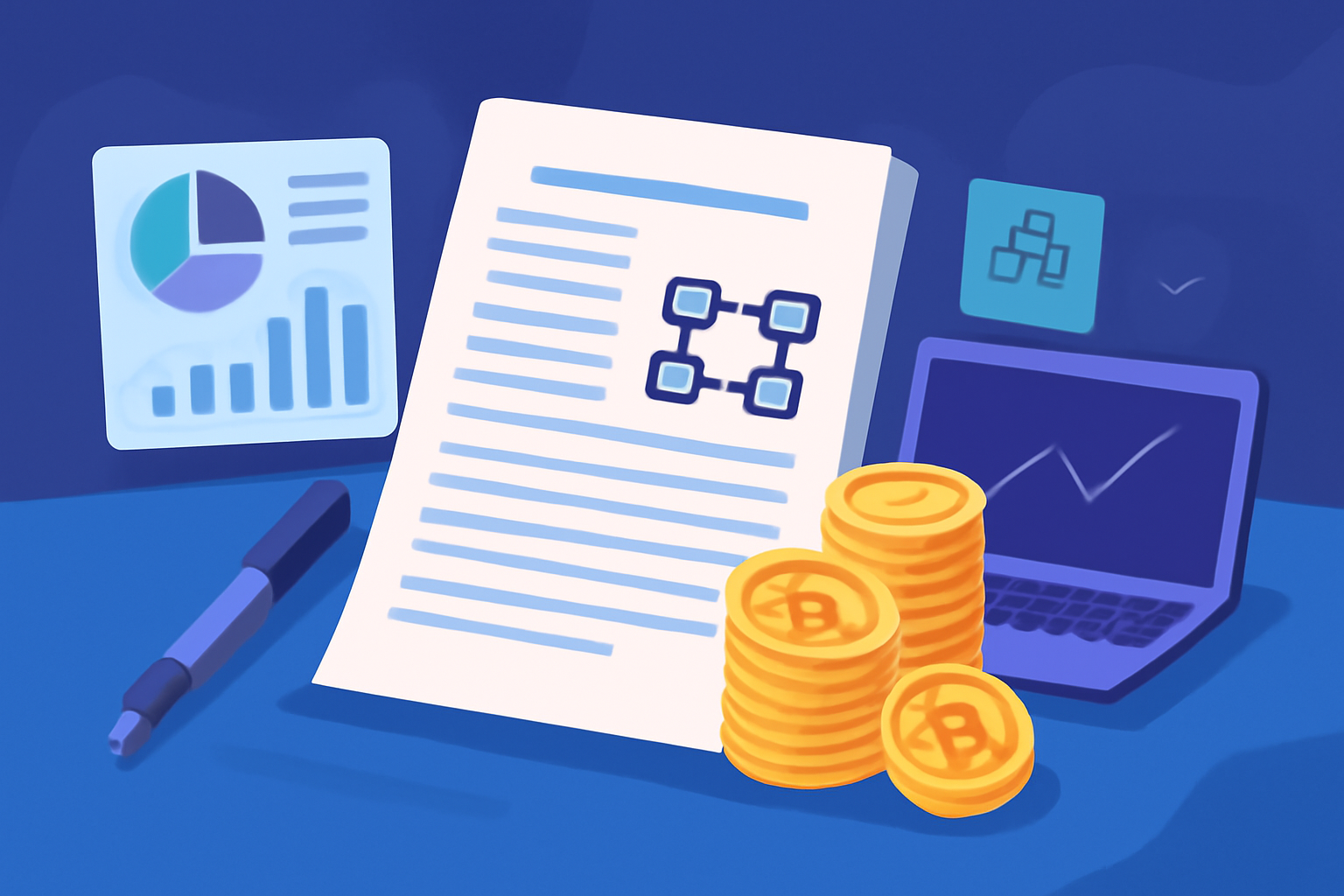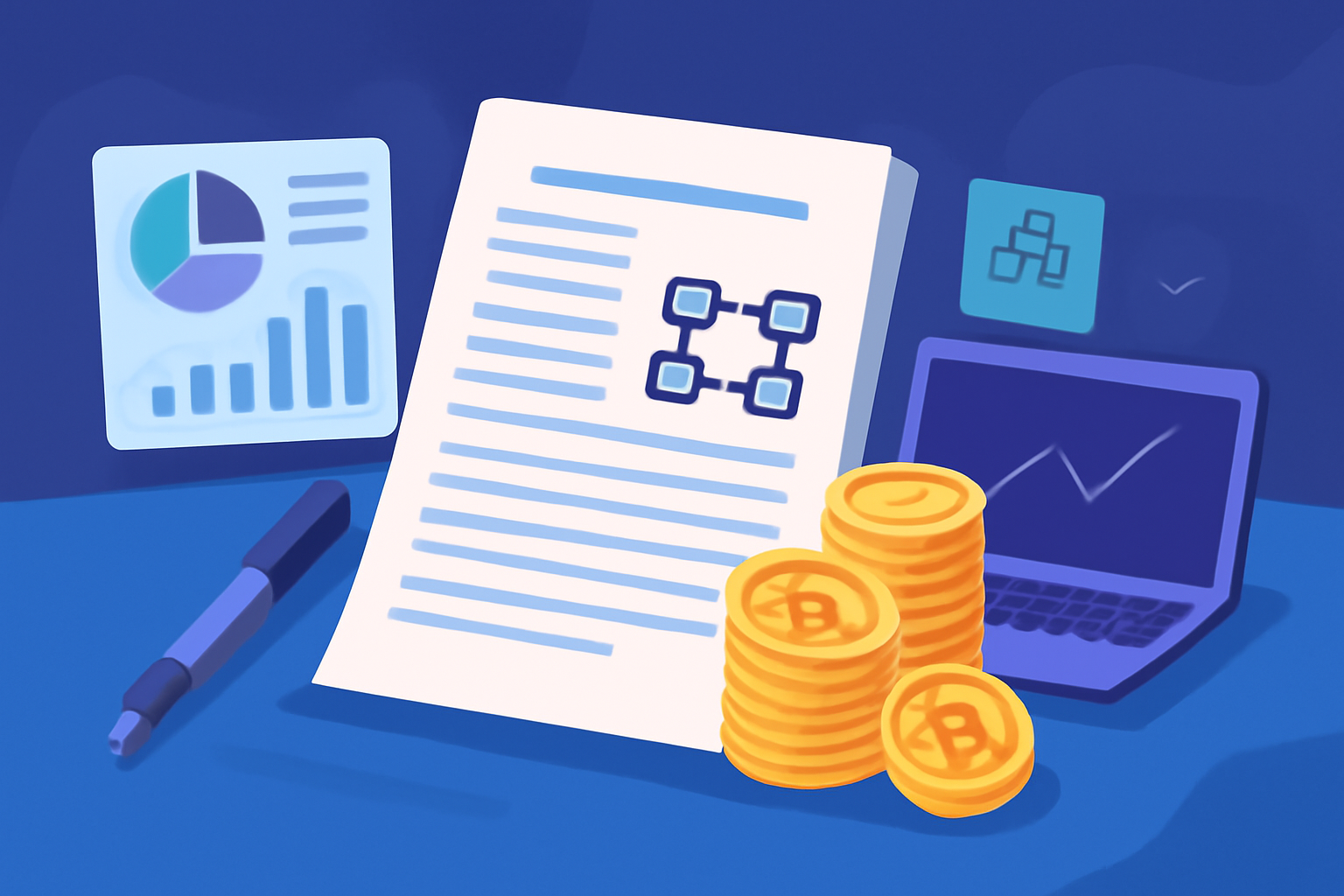Smart contracts are the foundation of decentralized applications (dApps), DeFi platforms, NFT ecosystems, and countless blockchain-based protocols. These self-executing pieces of code carry immense responsibility, from managing financial transactions worth millions to governing entire decentralized ecosystems. But with this power comes a critical need for security, reliability, and trust — and that’s exactly where smart contract audits become indispensable.
This comprehensive guide explores why smart contract audits are essential, how they are conducted, common vulnerabilities they detect, and the long-term benefits for developers, users, and the broader Web3 ecosystem.
What Are Smart Contract Audits?
A smart contract audit is a thorough review of a contract’s code to detect security flaws, inefficiencies, or non-compliance with specifications. The goal is to ensure the contract behaves exactly as intended and is resistant to exploits.
Audits are typically performed by specialized security firms or experienced developers, who use a combination of manual code review, automated tools, and formal verification methods.
Why Audits Are Crucial in Blockchain Development
Irreversibility of Blockchain Transactions
Blockchain transactions are permanent and cannot be reversed. If a vulnerability is exploited, there is no way to recover lost assets. Unlike traditional finance, there's no central authority to intervene, making security audits essential to prevent irreversible damage.
High Stakes in DeFi and Web3
DeFi and Web3 projects often manage substantial assets like treasuries, liquidity pools, or NFTs. A single bug can lead to millions in losses. Security breaches damage user trust, provoke lawsuits, and can permanently cripple a project’s reputation and viability.
Public and Open-Source Code
Smart contracts are typically open-source, making them accessible for anyone to inspect—including hackers. Without audits, vulnerabilities may remain unnoticed by developers but easily discovered by attackers. Audits help secure code before malicious actors can exploit it.
Regulatory Scrutiny and Institutional Trust
With growing adoption, regulators and institutional investors expect strong security measures. Projects without verified audits face hurdles such as legal challenges, exchange delistings, or failed funding rounds. Audits build credibility and demonstrate commitment to compliance and investor protection.
Common Vulnerabilities Found in Smart Contracts
Smart contract audits often detect the following classes of vulnerabilities:
Reentrancy Attacks
Reentrancy allows an attacker to repeatedly call a vulnerable function before the initial execution is complete. This can lead to draining funds, as seen in the 2016 DAO hack. Using mutexes or the “checks-effects-interactions” pattern helps prevent this.
Integer Overflows and Underflows
Older Solidity versions lacked built-in safety checks for integer operations. Overflows and underflows can result in unintended values that malicious actors may exploit. Libraries like SafeMath or newer Solidity compilers with built-in overflow checks mitigate this vulnerability effectively.
Access Control Flaws
Smart contracts without strict access control can be manipulated by unauthorized users. Missing onlyOwner checks or exposed admin functions may let attackers modify logic or transfer funds. Rigorous role validation is essential to protect sensitive operations.
Logic Errors
Flawed logic in conditionals, loops, or calculations can lead to contracts executing incorrectly. Even minor misplacements—like a swapped comparison operator—can cause major financial or functional issues. Audits help catch these errors before deployment on mainnet.
Gas Limit and DoS Issues
Functions that consume excessive gas or depend on unbounded loops may be vulnerable to denial-of-service (DoS) attacks. Attackers can exploit these to block function execution or render contracts unusable. Efficient code design is vital to avoid this.
How Smart Contract Audits Are Conducted
In the blockchain ecosystem, smart contracts are the foundational pillars of trustless and decentralized systems. These self-executing contracts carry out functions based on pre-written code without any manual intervention.
Understanding the Audit Scope
The audit process begins with defining the scope. This involves a detailed discussion between the development team and the audit firm to determine which smart contracts will be reviewed, which functions are critical, and what the auditors should focus on. At this stage, developers usually provide the full codebase, project documentation, and any relevant whitepapers or technical specs. This helps auditors gain a comprehensive understanding of the contract’s intended behavior and its interaction with other components. A well-defined scope ensures that both parties are aligned on expectations and that the auditors can allocate time and resources efficiently.
Automated Code Analysis
Once the scope is established, the auditors initiate automated code analysis using advanced tools like Slither, MythX, and Manticore. These tools conduct static analysis to scan the code for known vulnerability patterns and coding flaws. They can quickly detect common issues such as integer overflows, reentrancy vulnerabilities, and access control misconfigurations. While automated tools are fast and efficient, they are only the first layer of defense. They help identify superficial issues but cannot catch deeper, context-dependent bugs or logical flaws embedded in the business logic.
Manual Code Review by Experts
After the automated analysis, the core of the audit begins: the manual code review. In this phase, experienced auditors meticulously go through the smart contract line-by-line. Unlike machines, human auditors can interpret the intent of the contract and identify inconsistencies, flaws in logic, or potential attack vectors that automated tools may overlook. They analyze how variables are handled, how functions interact, and whether any part of the contract can be manipulated to behave unexpectedly. This is particularly important for DeFi projects, where subtle logic errors can be exploited for significant financial gain.
Simulations and Test Scenarios
Beyond reading code, auditors often perform simulations and test executions to examine how the smart contract behaves under different scenarios. This may involve writing additional unit tests, running fuzz tests, or simulating blockchain conditions to trigger specific contract states. These practical exercises help reveal edge cases and unexpected interactions, such as failed token transfers, broken fallback mechanisms, or unexpected gas consumption issues. Testing in this manner adds another layer of confidence in the contract’s robustness.
Delivering the Audit Report
The final stage of the audit process involves compiling a detailed audit report. This document outlines all findings, categorized by severity, along with explanations and suggested remediations. Developers then use this feedback to patch vulnerabilities and optimize the contract. In many cases, a follow-up re-audit is conducted to ensure all fixes have been properly implemented. Publicly sharing the audit report, especially in the DeFi space, helps build user trust and transparency.
Key Benefits of Smart Contract Audits
Increased Security
Smart contract audits uncover critical bugs and vulnerabilities before deployment, preventing malicious actors from exploiting flaws. This proactive approach is essential to safeguard funds and maintain the integrity of blockchain applications.
Higher Investor Confidence
Investors, especially venture capitalists and institutions, often require audited smart contracts before committing funds. An audit signals professionalism and reduces investment risk, making it easier for projects to attract capital.
Exchange Listings
Many top cryptocurrency exchanges, including Binance and Coinbase, mandate audit verification before listing tokens. Passing a reputable audit can accelerate listing approvals and improve market credibility.
Community Trust
For DeFi and NFT projects, audits build credibility by reassuring the community about the project's safety. They help reduce fears around scams or rug pulls, fostering stronger, long-term user engagement.
Better Code Quality
Audits often reveal inefficiencies and violations of best practices, enabling developers to optimize their code. Improved gas efficiency and cleaner logic contribute to better contract performance and reduced operational costs.
Smart Contract Audit Costs and Timelines
Cost
Audit fees vary widely depending on code complexity, the number of contracts, and the auditor’s expertise. Typical costs range from $5,000 to over $100,000, with high-profile projects like Yearn Finance paying six-figure sums for comprehensive audits.
Time
Audit durations typically range from one to six weeks. The timeline depends on the audit’s scope, contract complexity, and the auditor’s availability. Larger projects or those with multiple iterations may require extended periods.
Top Audit Firms in the Blockchain Space
Trail of Bits
Known for thorough code reviews and formal verification, Trail of Bits has audited many large DeFi projects. Their rigorous processes make them a trusted name in blockchain security.
CertiK
CertiK combines automated scanning with manual audits and publishes audit scores publicly. They are integrated with popular launchpads, enhancing project transparency and security.
ConsenSys Diligence
Backed by Ethereum’s co-founders, ConsenSys Diligence specializes in Ethereum smart contract audits. Their expertise is highly respected across the ecosystem.
OpenZeppelin
Creators of widely used secure smart contract libraries, OpenZeppelin also offers audit services. They focus heavily on Ethereum protocols and developer-friendly solutions.
Hacken
Hacken delivers security audits focused on DeFi platforms and crypto exchanges. They are recognized for quickly auditing emerging Web3 startups and securing high-growth projects.
Smart Contract Audits in DeFi, NFTs, and DAOs
DeFi Protocols
DeFi applications such as lending platforms, automated market makers (AMMs), and yield farms require ongoing audits. These protocols frequently upgrade and evolve, necessitating continuous security assessments.
NFT Projects
Though generally simpler than DeFi, NFT smart contracts often include complex features like royalty payments, minting limits, and randomness. Audits ensure these features function securely and as intended.
DAOs
Decentralized Autonomous Organizations rely on smart contracts for governance and treasury management. These contracts demand comprehensive vetting to prevent unauthorized access and ensure transparent, secure decision-making.
Conclusion
In a world where smart contracts govern billions in digital assets, ignoring audits is not just risky — it’s irresponsible. Whether you’re launching a DeFi protocol, minting NFTs, or building a DAO, smart contract audits provide the foundation of security, trust, and resilience.
For founders, an audit is more than just a checkbox for launch — it’s a signal to the community, investors, and regulators that your project takes security and transparency seriously.


